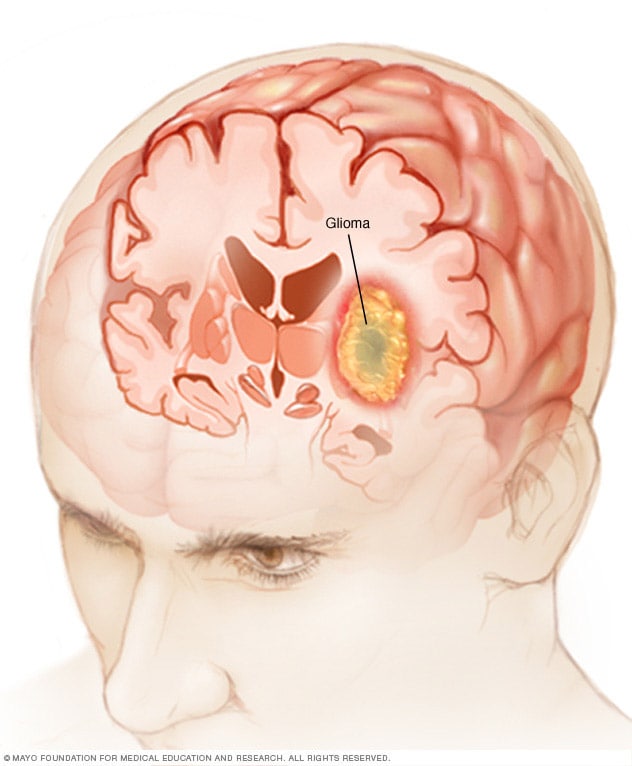
Gliomas (tumours within the brain) square measure particularly aggressive malignant styles of cancer, typically leading to the death of affected patients at intervals one to 2 years following designation. There is no cure for gliomas and most offered treatments give solely minor symptomatic relief.
A review of the fashionable scientific literature reveals varied presymptomatic investigations, some case reports, and one controlled clinical study demonstrating cannabinoids' ability to act as antineoplastic agents, particularly on glioma cell lines.
Writing within the September 1998 issue of the journal FEBS Letters, investigators at Madrid's Complutense University, faculty of Biology, first reported that Delta-9-THC induced apoptosis (programmed cell death) in glioma cells in culture.[1] Investigators followed up their initial findings in 2000, news that the administration of each consciousness-altering drug and therefore the artificial cannabinoid agonist WIN fifty five,212-2 "induced a considerable regression of malignant gliomas" in animals.[2] Researchers once more confirmed cannabinoids' ability to inhibit growth} tumour growth in animals in 2003.[3]
Italian investigators that very same year equally according that the non-psychoactive cannabinoid, cannabidiol (CBD), pent-up the expansion of varied human brain tumor cell lines in vivo and in vitro during a dose-dependent manner. Writing within the November 2003 issue of the Journal of medicine and Experimental medical specialty quick Forward, researchers complete, "Non-psychoactive CBD ... produce[s] a significant anti-tumour activity both in vitro and in vivo, so suggesting a potential application of CBD as Associate in Nursing antineoplastic agent."[4]
In 2004, Guzman and colleagues according that cannabinoids pent-up growth} tumor growth in animals and in human brain tumour multiforme (GBM) tumour samples by sterilization vas morphology (e.g., VEGF pathways). Writing within the August 2004 issue of Cancer analysis, investigators complete, "The gift laboratory and clinical conclusions give a completely unique medicine target for cannabinoid-based therapies."[5]
Researchers at the California Pacific heart analysis Institute according that the administration of consciousness-altering drug on human brain tumour multiforme cell lines reduced the proliferation of malignant cells and elicited cell death earlier than did the administration of the artificial cannabinoid agonist WIN fifty five,212-2. Researchers also noted that THC selectively targeted malignant cells while ignoring healthy ones in a more profound manner than the synthetic alternative.[6] A separate preclinical trial reported that the combined administration of consciousness-altering drug and therefore the pharmaceutical agent temozolomide (TMZ) "enhanced autophagy" (programmed cell death) in brain tumours immune to typical anti-cancer treatments.[7]
Guzman and colleagues have also reported that THC administration reduces recurrent glioblastoma multiforme tumour growth in some patients diagnosed with recurrent GBM. In the 1st ever pilot run assessing the employment of cannabinoids and GBM, investigators found that the intratumoral administration of consciousness-altering drug was related to reduced tumor cell proliferation in two of nine subjects. "The truthful safety profile of consciousness-altering drug, along side its potential antiproliferative action on tumor cells according here and in different investigations, may set the basis for future trials aimed at evaluating the potential antitumoral activity of cannabinoids," investigators complete.[8] many further investigators have conjointly recently drawn up additional exploration of cannabis-based therapies for the treatment of brain tumor.[9-11] A case report, revealed in 2011 within the journal of the International Society for medical specialty surgical operation, conjointly documents the spontaneous regression of residual brain tumours in 2 kids coinciding with the topics use of cannabis.[12]
In addition to cannabinoids' ability to moderate brain tumor cells, separate presymptomatic concerns demonstrate that cannabinoids and endocannabinoids also can inhibit the proliferation of different varied neoplastic cell lines,[13-14] including breast carcinoma,[15-19] prostate malignant neoplastic disease,[20-24] body part malignant neoplastic disease,[25-26] internal organ glandular carcinoma,[27] skin malignant neoplastic disease,[28] leukemia cells,[29-33] neuroblastoma,[34-35] lung carcinoma,[36-37] uterus carcinoma,[38] thyroid epithelioma,[39] pancreatic adenocarcinoma,[40-41] cervical carcinoma,[42-44] oral cancer,[45] biliary tract cancer (cholangiocarcinoma)[46] urological cancers,[47] and lymphoma,[48-49] among others. In some instances, improved anti-cancer activity has been reported when cannabinoids are administered in concert with one another, rather than in isolation.[50-51] A 2013 case report published in the journal Case Reports in medicine conjointly reports made treatment with cannabis extracts {in a|during a|in Associate in Nursing exceedingly|in a very} 14-year-old patient diagnosed with an aggressive kind of acute lymphoblastic leucaemia.[52] Population studies conjointly report Associate in Nursing inverse relationship between cannabis use and therefore the prevalence of varied forms of cancer, as well as carcinoma,[53] head and neck cancer,[54] and bladder cancer.[55]
Experts acknowledge that there exists "solid scientific proof supporting that cannabinoids exhibit an interesting malignant neoplasm activity in presymptomatic models of cancer,"[56] and that cannabinoids may one day "represent a new class of malignant neoplasm medication that retard cancer growth, inhibit angiogenesis and the metastatic spreading of cancer cells."[57-58] Presently, Rick Simpsons Oil use is prevalent among patients with various types of cancer, though many say that they "desire but are not receiving information about cannabis oil use during their treatment from oncology providers."[59] Despite an absence of clinical trials, "abundant anecdotal reports describe patients having exceptional responses to cannabis oil as Associate in Nursing malignant neoplasm agent, especially when taken as a high-potency orally ingested concentrate. … Human studies ought to be conducted to deal with crucial queries associated with the preceding effects."[60]
Disclaimer: the principles contained here is not designed nor meant to be a substitute for professional medical advice, it is only achieved for educational confidences only. You should assume full responsibility for the approach you opt on to use this information contained.
Comments
Post a Comment